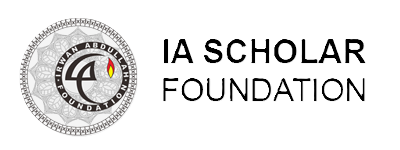Democratic State Governance: The Urgency of Implementing Conventions in Constitutional Practices in Indonesia
DOI:
https://doi.org/10.35719/fenomena.v23i1.155Keywords:
Urgency, Convention, Constitutional PracticeAbstract
Constitutional conventions are often used with different meanings depending on the context of the discussion. Constitutional conventions are only limited to agreements between bilateral and multilateral countries, agreements among international law subjects, meetings of political, legislative, fraternal members or representatives, and other organizations. Constitutional conventions are not formed and built from laws, court decisions, or parliamentary customs but are outside of them to regulate political behavior. This research aims to determine the urgency of constitutional practice conventions in Indonesia. This research uses qualitative research. The method used in this research is a normative legal research method. This research concludes that the Convention in constitutional practice in Indonesia has an essential urgency in forming and regulating government governance. The urgency of conventions in constitutional practice is to perfect the constitutional system, empower state institutions, develop constitutional law, and provide crisis resolution in politics.
Downloads
References
Abas, M., Citra, H., Amalia, M., Lawra, R. D., Kamilah, A., Fajrina, R. M., Marwenny, E., & Nizwana, Y. (2023). Pengantar hukum Indonesia: Pemahaman dasar dalam sistem hukum. Sonpedia Publishing Indonesia.
Agiwinata, W. (2014). Konvensi ketatanegaraan sebagai batu uji dalam pengujian undang-undang di Mahkamah Konstitusi. Yuridika, 29(2), 149–167. https://doi.org/10.20473/ydk.v29i2.3420
Aprilia, Y. (2018). Studi komparasi penerapan sistem pemerintahan presidensiil dalam UUD 1945 sebelum dan setelah amandemen. Universitas Muhammadiyah Magelang.
Arbani, T. S. (2016). The existence of conventions as sources and practices of state governance in Indonesia. Supremacy of Law Journal, 5(1).
Ardilafiza, & Tamrin, H. (2010). Kedudukan konvensi ketatanegaraan pasca terbentuknya Mahkamah Konstitusi. Jurnal Konstitusi, 3(1)
Asshiddiqie, J. (2008). Gagasan dasar tentang konstitusi dan Mahkamah Konstitusi. Mahkamah Konstitusi Republik Indonesia.
Attamimi, H. (2017). Materi muatan peraturan perundang-undangan. Jurnal Hukum & Pembangunan, 15, 54–65.
Ayuningtias, D. I. (2014). Pidato politik di Indonesia: Sebuah kajian wacana kritis. Prosodi, 8(1).
Dicey, A. V. (1967). An introduction to the study of the law of the constitution (9th ed.). Macmillan and Co. https://doi.org/10.31078/jk1833
Hermanto, A., & Mahendra, R. (2019). The role of constitutional conventions in Indonesian legal system. Journal of Constitutional Law, 12(2).
Hughes, C. A. (1980). Conventions: Dicey revisited. Politics, 15(2), 41–49.
Indrayana, D. (2007). Amandemen UUD 1945: Antara mitos dan pembongkaran. Mizan Pustaka.
Jackson, P., & Leopold, O. P. (2001). Hood Phillips and Jackson: Constitutional and administrative law. Sweet & Maxwell.
Jennings, I. (1956). The law of the constitution. University of London Press.
Mahardika, A. G. (2019). Konvensi ketatanegaraan dalam sistem hukum nasional di Indonesia pasca era reformasi. Jurnal Rechts Vinding: Media Pembinaan Hukum Nasional, 8(1), 55–67. https://doi.org/10.33331/rechtsvinding.v8i1.303.
Meliana, Y. (2021). Kajian yuridis tentang perlindungan hak asasi manusia dalam kehidupan bernegara di Indonesia ditinjau dari Undang-Undang Nomor 39 Tahun 1999 tentang hak asasi manusia. Justici, 13(1), 67–91.
Mujaddidi, S. (2022). Konstitusionalitas pembatasan hak asasi manusia dalam putusan Mahkamah Konstitusi. Jurnal Konstitusi, 18(3), 539–561.
Mustaghfirin, H. (2011). Sistem hukum Barat, sistem hukum adat, dan sistem hukum Islam, menuju sebagai sistem hukum nasional sebuah ide yang harmoni. Jurnal Dinamika Hukum, 11, 89–95.
Nasution, M. T. (2020). Reformulasi kebijakan haluan negara: Antara realita dan cita-cita. EnamMedia.
Nazriyah, R. (2010). Kewenangan Mahkamah Konstitusi dalam menguji peraturan pemerintah pengganti undang-undang. Jurnal Hukum IUS QUIA IUSTUM, 17(3), 345–360.
Nugroho, W. (2013). Menyusun undang-undang yang responsif dan partisipatif berdasarkan cita hukum Pancasila (Drafting responsive and participative regulation based on Pancasila law idealism). Jurnal Legislasi Indonesia, 10, 209–218.
Pahlevi, (2016). Lembaga penyelenggara pemilihan umum di Indonesia: Berbagai permasalahannya. Jurnal Politica Dinamika Masalah Politik Dalam Negeri Dan Hubungan Internasional, 2(1).
Purwanto, H. (2011). Keberadaan asas rebus sic stantibus dalam perjanjian internasional. Mimbar Hukum-Fakultas Hukum Universitas Gadjah Mada, 102–121.
Republik Indonesia. (1945). Undang-Undang Dasar 1945. Sekretariat Jenderal MPR RI.
Rinardi, H. (2017). Proklamasi 17 Agustus 1945: Revolusi politik bangsa Indonesia. Jurnal Sejarah Citra Lekha, 2(2), 143–150.
Satriaji, I. (2022). The flexibility of constitutional systems: The role of conventions in Indonesia. Asian Journal of Legal Studies, 10(3).
Sompotan, H. B. (2016). Implikasi hukum perjanjian internasional dalam kerjasama kota kembar (Sister City) di Indonesia. Jurnal Penelitian Hukum, 3(3).
Sulardi, M., Supriyadi, S., & Rahman, A. (2015). The effect of learning media on student learning outcomes in mathematics. International Journal of Education and Research, 3(2), 123–134.
Suprijatna, D. (2018). Konvensi ketatanegaraan dalam praktik konstitusi Indonesia. Jurnal Hukum De’Rechtsstaat, 1.
Supryadi, A., & Amalia, F. (2021). Kedudukan peraturan menteri ditinjau dari hierarki peraturan perundang-undangan di Indonesia. Unizar Law Review (ULR), 4(2).
Taroreh, R. T., Rumokoy, D. A., & Palilingan, T. N. (2023). Praktik konvensi ketatanegaraan terhadap masa jabatan jaksa agung di Indonesia. Lex Privatum, 11(4).
Thalib, A. R. (2018). Bridging constitutional gaps: The function of conventions in Indonesian law. Indonesian Law Journal, 5(2).
Thalib, A. R. (n.d.). Wewenang Mahkamah Konstitusi dan implikasinya dalam sistem ketatanegaraan Republik Indonesia. Citra.
Downloads
Published
Issue
Section
License
Copyright (c) 2024 Muhammad Mutawalli Mukhlis, Paul Atagamen Aidonojie, Zulhilmi Paidi, Muhammad Saleh Tajuddin

This work is licensed under a Creative Commons Attribution-NonCommercial 4.0 International License.















